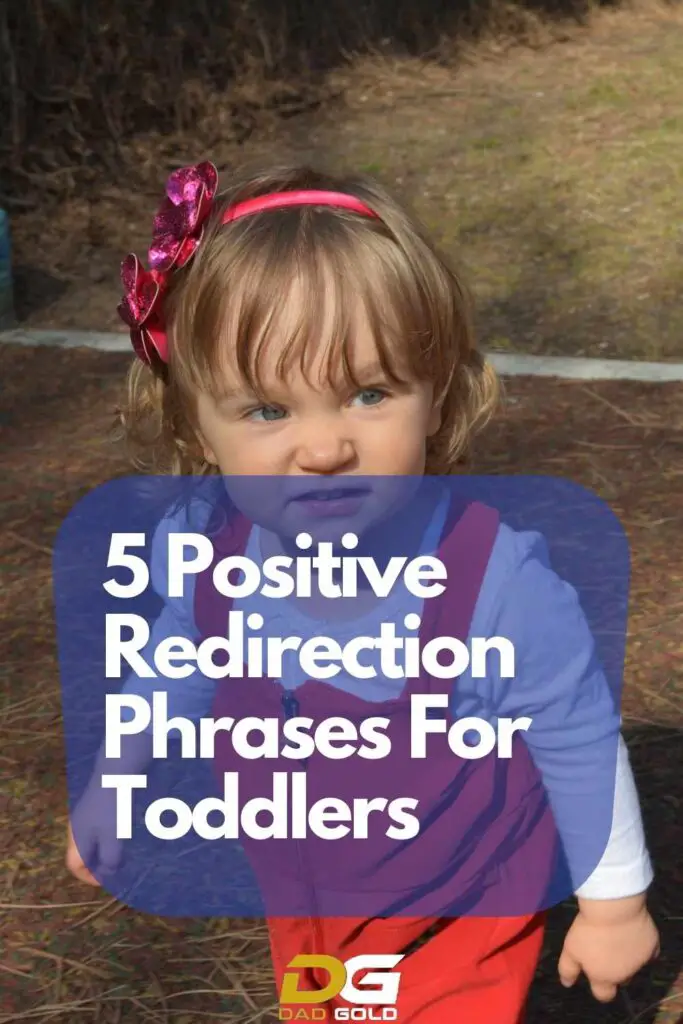Toddlers are right in the middle of their development phase.
Their brains are still learning what is right, wrong and how people will react to either one.
It can be pretty tempting to react to them doing something they’re not supposed to be in a negative manner – many parents find themselves using the word “no” quite often.
However, the overuse of “no” could be quite detrimental to your toddlers’ learning process.
Reinforcing bad behavior with negative consequences might seem like the correct parenting tactic, but that’s not always the case.
Positive parenting has quickly gained traction in recent years as experts continue to analyze and promote the positive effects of redirection over punishment.
As the parent of a toddler, removing “no” and “don’t” from your vocabulary could be the exact thing you need to help your toddler develop properly.

Understanding Positive Action Over Negative

Why shouldn’t parents use the word “no” over and over for their toddlers? They need to understand that their behavior is wrong and unwanted, right?
-

Bold Male Pride – Baseball Trucker Cap Celebrating Masculinity
$25.00 Select options This product has multiple variants. The options may be chosen on the product page -

Dad Bod Appreciation Gift Mug
$20.00 Add to cart -

Dad Bod, Bad Jokes Structured Baseball Cap
$31.00 Select options This product has multiple variants. The options may be chosen on the product page
Yes, they need to understand that what they’re doing or asking for isn’t what is expected of them. However, toddlers don’t have the same understanding of the word “no” as adults do.
Children under three don’t quite grasp the concept of “no,” and toddlers slowly learn what it means.
When toddlers are told “no” in response to a question like, “can I have this,” they don’t consider it a denial.
Toddlers find the logic behind words like “no” to mean something almost entirely different from your intentions when saying it. So, learning the meaning of “no” over time becomes much more difficult for them.
Positive parenting and redirection help parents avoid dampening the meaning of “no” while reinforcing a behavior change.
Positive parenting has all of the impacts of a punishment without the adverse side effects that could occur during your toddler’s developmental phase.
Why Redirection?

The more you use the word “no,” the less it will work for your toddler. “No” is an important word that will need to be learned and understood eventually, but as mentioned, they don’t quite register it in the same way as they will when they’re older.
So, instead of dampening the meaning of the word “no,” it’s important that you redirect their bad behavior into good habits.
The redirection will enable your child to understand that they’re doing something they shouldn’t be doing and will help them practice good behavior over bad.
The redirection will also allow them to see openings in the future rather than a brick wall – an example of this being telling them they can play games later rather than straight-up saying no to them.
The less you say no to your toddler, the more likely they will listen to you. Clearly, “no” to them isn’t the same as “no” to us, so you must use that to your advantage.
Positive parenting allows you to keep the impact and importance of the word “no” while redirecting their energy into good behavior.
5 Phrases to Help Redirect Your Toddlers

Let’s look at five phrases parents can use to redirect their toddlers.
These phrases can be personalized and swapped out as needed to help reinforce positive behavior and expectations of your toddler.
Changing No to Yes
Whenever your toddler asks if you can go to the park or partake in an activity, instead of telling them, “no, not today,” try telling them, “we can go over the weekend.”
This allows you to say no to the park without actively telling them no.
Remove “Don’t” From Your Vocabulary.
Another word parents of toddlers use far too often is “don’t.” Instead of saying things like “don’t run,” try saying “slow down your pace” or “turn it to a walking speed.” Similarly, changing no to yes allows you to instruct them without emphasizing “don’t.”
Thank Them For their Attentiveness
If ever they’re doing something they shouldn’t be and you redirect their behavior, thank them for listening to you.
It’s as important to reinforce their positive behavior as it is to deter their negative actions. Thanking them for listening allows them to understand that they did something right.
“Walk Like a Turtle”
Instead of telling them, “don’t run” or “don’t yell,” redirect them with funny phrases and activities. Toddlers listen when there’s an activity for them to do involved.
Turning the redirection of their behavior into a fun game with phrases like “walk like a turtle” will make your toddler much more willing to listen.
“We’ll Add That to Your Birthday List.”
Phrases like this are a fantastic way to deter interest in items they “have to have” every time you go to the store.
If their interest in it is genuine, they’ll continue asking you for the item for their birthday.
However, you mustn’t use this phrase too often, as it can quickly lose meaning. Your toddler must understand that you mean it when you say you’ll get it for their birthday.
The Importance of Learning “No” In Time

This doesn’t mean that you should never say “no” to your toddler – they need to learn what it means eventually and the impact of someone saying it to them.
However, it would be best if you did this once their brains have developed to the point where they can comprehend the word’s meaning.
Once it’s clear that they know what the word “no” means and what they should do when someone says it, then it’s time to teach them about this important word.
Teaching your children “no” once they understand it will help them respect the word more as they grow up.
As a parent of a toddler, redirection is essential to your child’s developmental phase. It helps them to reinforce positive behavior and keeps them curious.
Redirection allows your child to explore safely, whereas continuous “no” responses will shut them down to the point where they don’t listen.
Teach them “no” when the time is right, but always be sure to couple it with redirection and positive parenting phrases to reinforce good behavior.
Conclusion
These positive redirection phrases for toddlers can save your sanity! They are a vital part of positive parenting.
Children learn more than they do when told “no” or “don’t do that.”
Consider the emotions and feelings of your toddler, and use words that will inspire them to do better, not stop them from doing something wrong!
Good luck!

